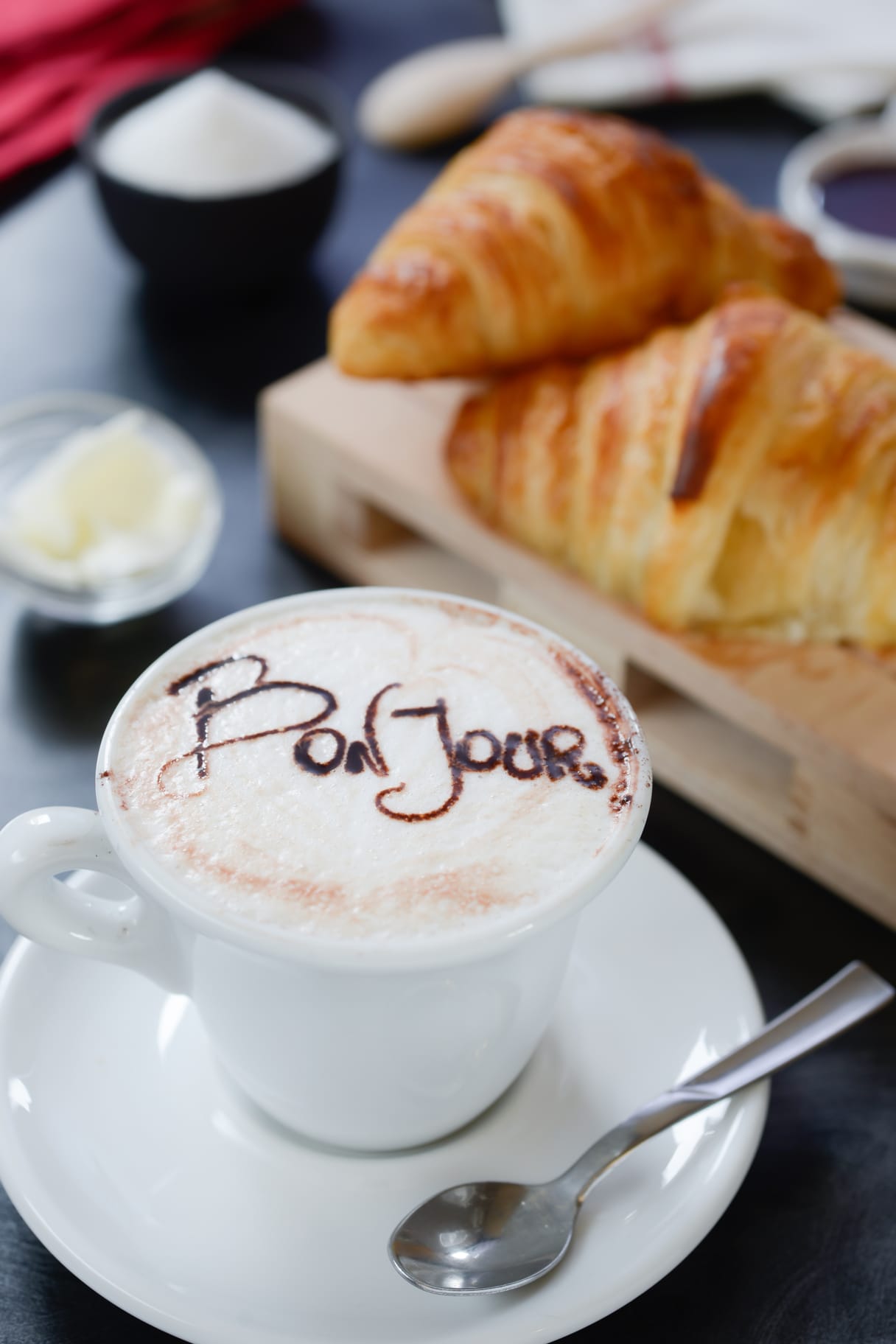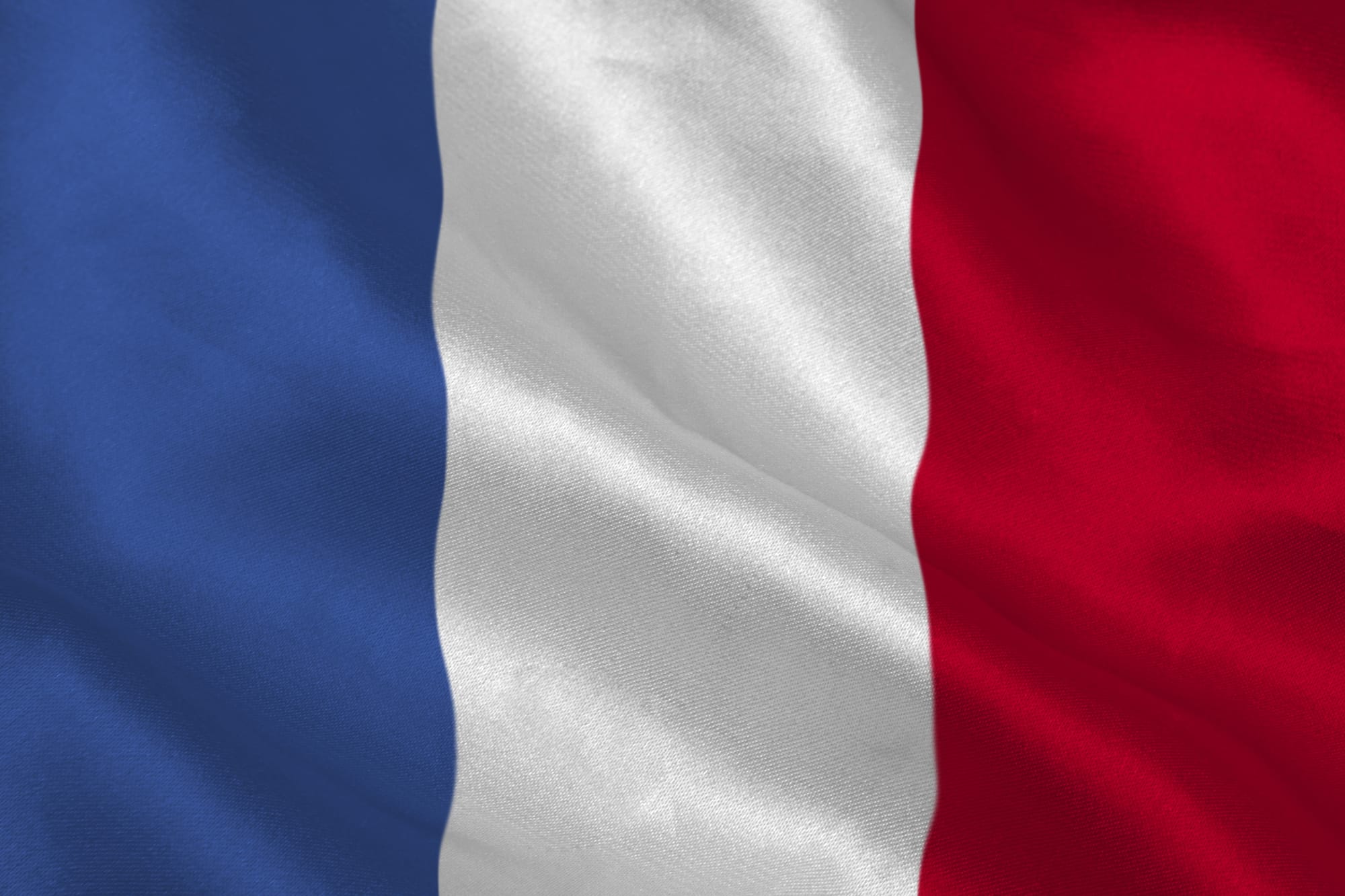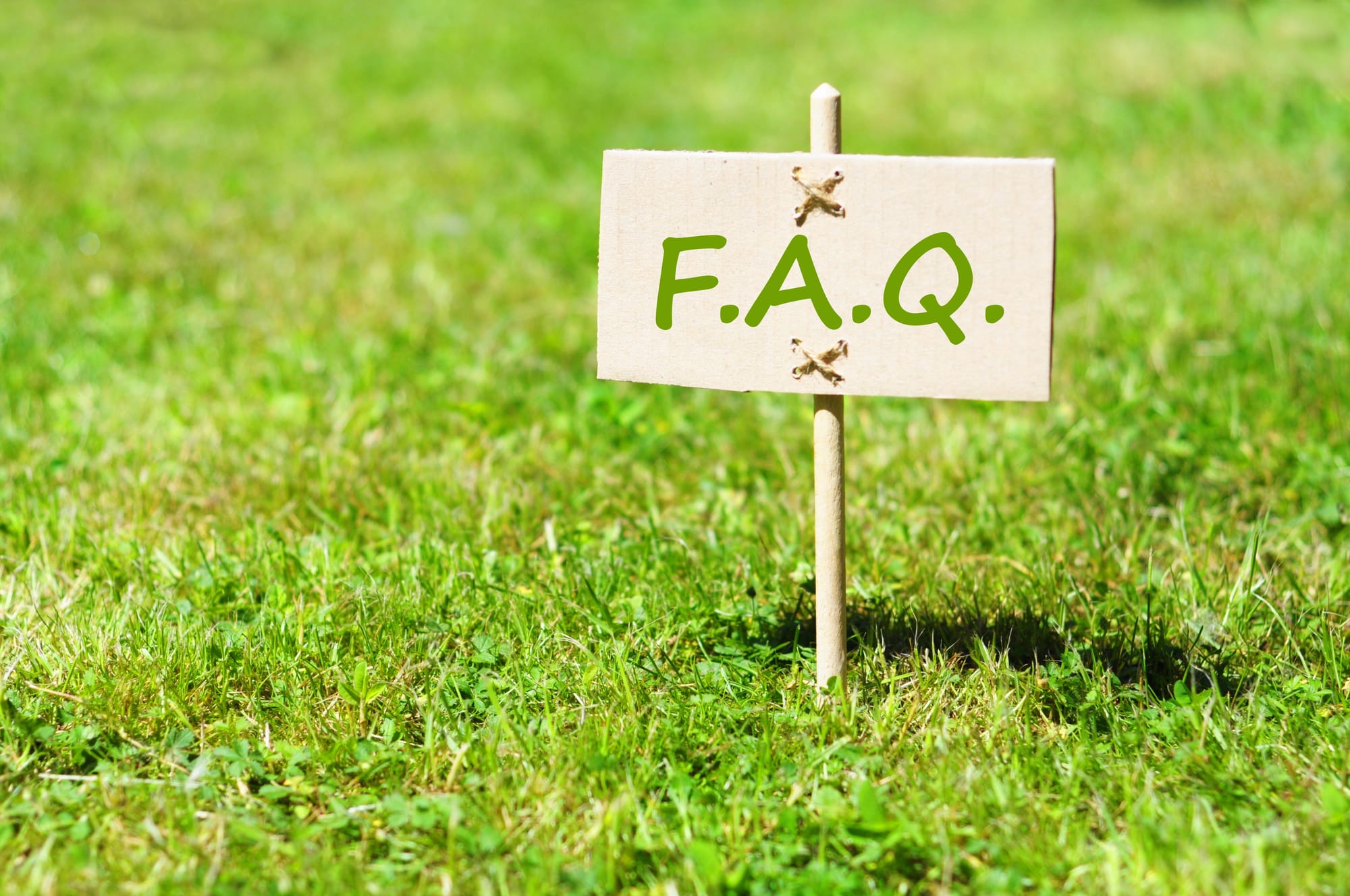Bonjour, Salut, Au Revoir: Navigating French Greetings
• public
Bonjour, language enthusiasts! Are you eager to learn how to say hello in French and master French greetings without sounding like a novice? You're in for a treat! Today, we're diving into the essential world of French greetings and goodbyes.
Let's face it: knowing how to say hello and goodbye in French is like having a golden ticket to making new friends and navigating social situations with ease. These French phrases are your first step towards connecting with native French speakers and immersing yourself in the rich French culture. Plus, there's something undeniably charming about casually dropping a "Salut!" or a sophisticated "Au revoir" into your conversation, isn't there?
Whether you're planning a trip to Paris, dreaming of living in a cozy French village, or just want to impress your friends at the local café, mastering these common French greetings will give you a head start. From formal French greetings to casual ways to say goodbye in French, we've got you covered. Ready to add some French flair to your vocabulary and learn how to greet someone in French like a pro? Allons-y! (Let's go!)

French Greetings: How to Say Hello in French Like a Native
Let's kick things off with the essentials. Mastering French greetings isn't just about memorizing words—it's an art form! Here's your comprehensive guide to greeting people in French like a true Francophile:
1. Common French Greetings
• Bonjour (Good day/Hello)
Imagine stepping into a charming Parisian café. Your first words? "Bonjour!" This versatile French greeting works any time of day, whether you're chatting with a friendly barista or greeting your new French boss.
• Salut (Hi)
Picture meeting your French friends for a game of pétanque. "Salut!" is your go-to casual French hello. It's relaxed, cool, and shows you're fluent in French social cues.
• Bonsoir (Good evening)
As the Eiffel Tower illuminates the Parisian night, switch to "Bonsoir." It's perfect for evening greetings or when you're fashionably late to a French dinner party.
• Allô (Hello - phone greeting)
When answering calls in French, channel your inner Parisian with a smooth "Allô?" Remember, this French phone greeting is strictly for calls—using it in person might raise eyebrows!
2. Informal and Regional French Greetings
• Coucou (Hi there/Hey)
Want to sound extra friendly? "Coucou" is your secret weapon in casual French greetings. It's like a verbal hug for close friends and family. Use cautiously—it might be too informal for new acquaintances!
• Y'a bonjour (Hello - regional variant)
In certain French regions, you might hear "Y'a bonjour." Using this regional French greeting will help you blend in like a local.
3. Responding to French Greetings
When someone greets you in French, don't freeze! Here's how to keep the conversation flowing:
- Mirror their greeting: If they say "Bonjour," respond with "Bonjour."
- Add extra flair: Try "Bonjour, comment allez-vous?" (Hello, how are you?)
- Keep it casual: If greeted with "Salut," respond "Salut! Ça va?" (Hi! How's it going?)
Remember, in French culture, a smile accompanies every greeting. Pair these French hello phrases with your best grin, and you'll be making French friends in no time!

French Goodbyes: Essential Phrases for Saying Farewell in French
Mes amis, you've mastered French hellos, but what about when it's time to bid adieu? Let's explore the art of French farewells and how to say goodbye in French like a native!
1. Common French Goodbye Phrases
• Au revoir (Goodbye)
The classic French farewell. Use this versatile goodbye when leaving a shop, ending a conversation, or parting ways with anyone. It's the Swiss Army knife of French goodbyes!
• Salut (Bye)
A double agent in French greetings and goodbyes! "Salut" works for casual farewells too. Use it with friends and family for a relaxed French goodbye.
• Bonne journée (Have a good day)
Spread positivity with this daytime French farewell. It's perfect for polite goodbyes and will earn you extra points in French etiquette.
• Bonne soirée (Have a good evening)
As day turns to night, switch to this evening-appropriate French goodbye. Ideal when leaving a restaurant or bidding neighbors goodnight.
• À bientôt (See you soon)
Planning to meet again? "À bientôt" is your go-to French farewell. It's friendly and optimistic – perfect for that "until next time" vibe.
2. Other French Farewell Expressions
• À tout à l'heure (See you later)
Use this French goodbye when you'll reconnect later the same day. It's the French way of saying "catch you in a bit!"
• À demain (See you tomorrow)
A handy French farewell for colleagues or classmates. Simple, clear, and frequently used in daily French conversations.
• À plus tard / À plus (See you later)
The cool, abbreviated French goodbye. "À plus" is the French equivalent of "catch you later!"
• Adieu (Farewell)
Handle with care! This French goodbye is for major farewells, like moving abroad. It carries a sense of finality, so use sparingly.
3. Situational French Goodbyes
• Bon voyage (Have a good trip)
The perfect French farewell for travelers. Seeing off a friend at the airport? "Bon voyage" is your go-to phrase.
• Bonne chance (Good luck)
Wish someone well in French before a big moment. It's ideal for job interviews or first dates.
• Bon courage (Take care/Stay strong)
A versatile French phrase for challenging situations. It's like a verbal pat on the back in French.
Remember, in French culture, goodbyes are as crucial as hellos. Take time to say farewell properly and leave a lasting impression with these French goodbye phrases!

French Cultural Etiquette: Essential Tips for Greetings and Communication
Alright, language adventurers! Now that you've mastered French hellos and goodbyes, let's dive into the cultural nuances that will make your French truly shine. After all, speaking French isn't just about words—it's about embracing the joie de vivre!
1. The Importance of French Politeness
In France, politeness isn't just nice—it's practically a national sport! Here's how to win gold in French etiquette:
- Always start with a French greeting: Whether entering a shop or asking for directions, lead with a cheerful "Bonjour!"
- Master the French "vous" and "tu": Use "vous" (formal "you") with strangers, elders, or in professional settings. Save "tu" (informal "you") for friends, family, and children.
- Use French polite phrases: Pepper your speech with "s'il vous plaît" (please) and "merci" (thank you). The French love their magic words!
2. French Non-Verbal Communication
La Bise: The French Cheek Kiss
Ah, the famous French greeting kiss! Here's what you need to know:
- Common between friends and family in France
- Number of kisses varies by French region (one to four!)
- Usually start with the left cheek
- When in doubt, let the French person lead
French Handshakes and Personal Space
- Handshakes: Reserved for formal French greetings. Keep them firm, brief, and maintain eye contact.
- Personal space: The French tend to stand closer during conversations than some cultures. Don't back away—it might seem rude in French culture!
3. Practical French Conversation Scenarios
Let's put French greetings and etiquette into practice with real-life situations:
Entering a French Store
- You: "Bonjour, Madame!" (with a smile)
- Shopkeeper: "Bonjour!"
- You: browse, then "Au revoir, bonne journée!"
- Shopkeeper: "Merci, à vous aussi!"
Meeting Someone in France for the First Time
- You: "Bonjour, je m'appelle [Your Name]. Enchanté(e)!"
- New acquaintance: "Bonjour [Your Name], enchanté(e) également!"
Leaving a French Party
- You: "Je dois y aller. Merci pour cette soirée!"
- Host: "Déjà? Bon, à bientôt alors!"
- You: "Oui, à bientôt! Bonne soirée à tous!"
Remember, the French appreciate effort in following their customs. Even if your French accent isn't perfect, using these French phrases and cultural tips with enthusiasm will win you smiles and maybe even new French friends!

Master French Greetings and Goodbyes: Your Key to French Conversation Success
Et voilà! You've just completed a whirlwind tour of essential French phrases for greetings and farewells. Let's recap the key French language skills you've acquired:
- French Hello Phrases: From the versatile "Bonjour" to the casual "Salut," you're now equipped to greet anyone in French, any time of day.
- French Goodbye Expressions: When it's time to bid farewell, you've got options galore—from the classic "Au revoir" to the optimistic "À bientôt."
- French Cultural Etiquette: Remember, in France, it's not just what you say, but how you say it. A warm smile, a cheek kiss (when appropriate), and a polite demeanor are crucial in French communication.
Putting Your French Phrases into Practice
Now comes the exciting part—it's time to test your new French language skills! Don't be shy; use these French greetings and goodbyes at every opportunity:
- Order your croissant with a hearty "Bonjour"
- Bid your neighbors "Bonne soirée" as the sun sets
- Surprise your French-speaking friends with a playful "Coucou!"
Embracing Your French Language Journey
Learning French is an adventure, and you've just taken a significant step. Each "Bonjour" and "Au revoir" represents a small victory, a connection made, and a moment of cultural exchange. So, go forth and sprinkle your conversations with these French phrases—you might discover they add an extra dash of joie de vivre to your day!
Share Your French Language Experiences
We'd love to hear about your adventures in French greetings and goodbyes. Have you encountered any amusing mishaps or heartwarming moments while practicing your French? Share your stories in the comments below!
Remember, mastering French is a community effort. If you have questions or want to share regional French greetings we might have missed, don't hesitate to join the conversation. After all, every "Bonjour" is an opportunity to make a new French-speaking friend.
Bonne chance et à bientôt, mes amis! (Good luck and see you soon, my friends!)

FAQ: Mastering French Greetings and Goodbyes
Got questions about French salutations? We've got answers! Here are some frequently asked questions about saying hello and goodbye in French:
1. When to Switch from "Bonjour" to "Bonsoir" in French
Q: What time should I switch from "Bonjour" to "Bonsoir"? A: There's no strict rule, but generally, switch to "Bonsoir" around 6 PM or when it starts getting dark. If in doubt, match what other French speakers around you are saying.
2. Using Informal French Greetings
Q: Is it rude to use "Salut" with someone I've just met? A: It's best to err on the side of caution and use "Bonjour" for French introductions. Save "Salut" for when you've established a friendly rapport or for people close to your age in informal settings.
3. Navigating "Tu" vs "Vous" in French Conversation
Q: How do I know whether to use "tu" or "vous"? A: Use "vous" for people older than you, in positions of authority, or in formal French situations. Use "tu" for friends, family, and children. When in doubt, start with "vous" – the other person will let you know if "tu" is okay.
4. French Greeting Customs: La Bise
Q: Do I really need to do "la bise" (cheek kisses) when greeting people in France? A: It depends on the situation. In professional French settings, a handshake is often sufficient. With friends and family, la bise is common. If you're unsure, let the French person initiate and follow their lead.
5. French Goodbye Phrases: "À plus tard" vs "À bientôt"
Q: What's the difference between "À plus tard" and "À bientôt"? A: "À plus tard" typically means you'll see the person later the same day, while "À bientôt" is a more general French farewell, meaning "see you soon" without a specific timeframe.
6. Using "Ciao" in French
Q: Is it okay to say "Ciao" in French? A: While "Ciao" is Italian, it's become quite common in informal French, especially among younger people. It's used as both a casual French hello and goodbye.
7. Responding to "Ça va?" in French
Q: How do I respond if someone asks "Ça va?" after saying hello? A: A simple "Ça va bien, merci. Et vous?" (I'm doing well, thanks. And you?) is perfect. Remember, it's often more of a French greeting than a genuine inquiry about your well-being.
8. French Greetings to Use with Caution
Q: Are there any French greetings or farewells I should avoid? A: Be cautious with very informal French slang like "Wesh" (similar to "Yo") unless you're sure of the context. Also, remember that "Adieu" implies a very final goodbye in French and isn't used casually.
Remember, the best way to get comfortable with French greetings and farewells is to practice. Don't be afraid to make mistakes – most French speakers appreciate the effort and will be happy to help you learn French!
